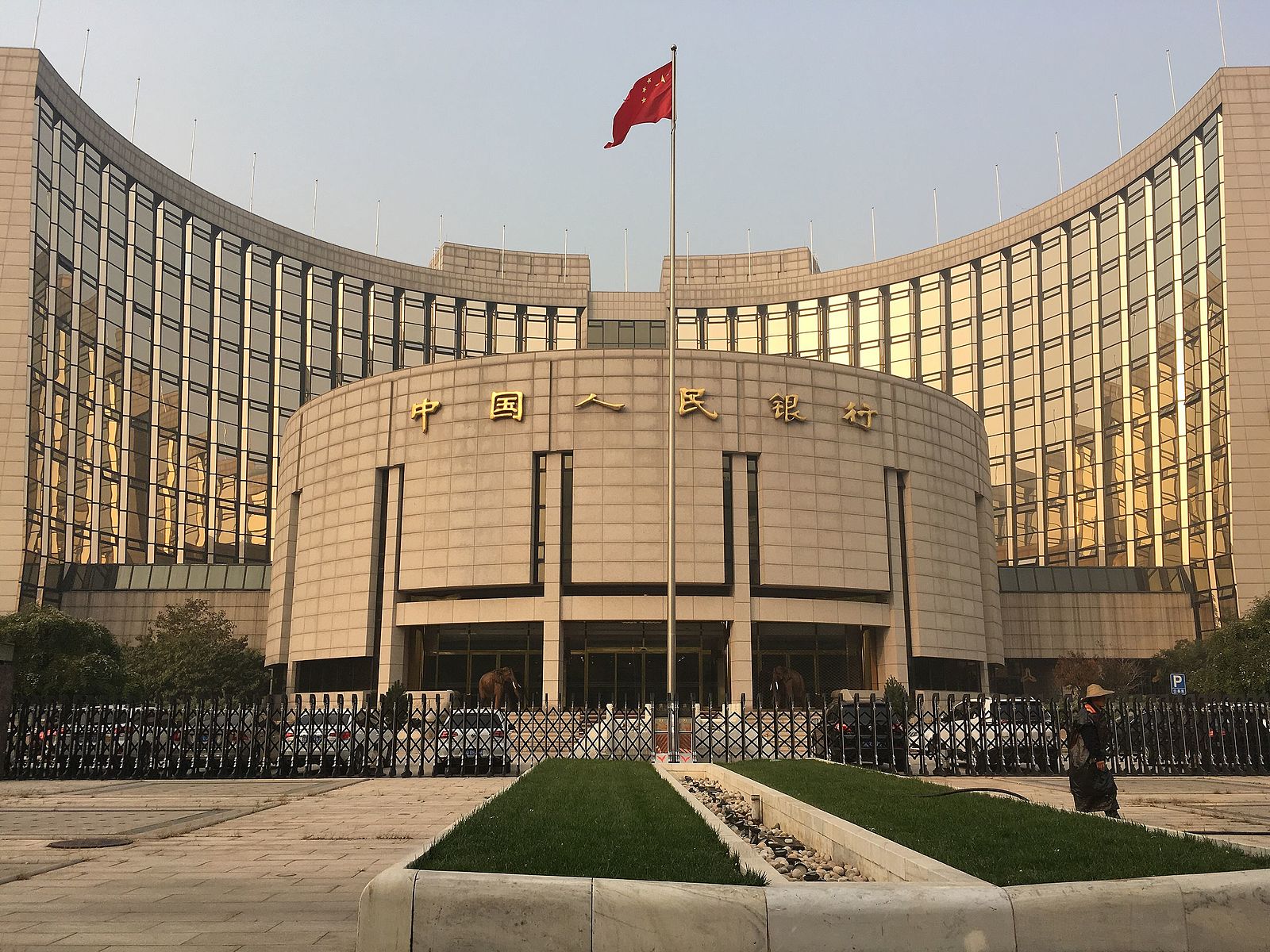China and the European Union Finalize Investment Agreement; China Approves Vaccine
Lawfare’s biweekly roundup of U.S.-China technology policy and national security news.

Published by The Lawfare Institute
in Cooperation With

As of Dec. 30, negotiations between the European Union and China over a new agreement on direct investment are finished.
If the European Parliament ratifies the agreement, it will include rules on transparency, a prohibition on forced technology transfer and new obligations for state-owned enterprises. The deal should also ease European investment in China—including in high-tech sectors such as cloud services—creating a more “level playing field,” a longstanding European desire. China is Europe’s largest trading partner as of this year, and the deal should further strengthen European exports to the Chinese market, a key incentive for Germany and others. The deal also provides that Beijing will “work toward” ratification of conventions under the International Labor Organization (ILO).
The European Union will now have to find ways to pressure China into honoring those commitments. Opposition within the European Parliament may derail the deal; some members feel that the agreement will allow China to carry on its actions in Xinjiang, including reported forced labor, with impunity. Reinhard Bütikofer, the chair of the European Parliament’s delegation that handles Europe-China relations, suggested that the Chinese commitments to pursue ratification of the ILO conventions were inadequate to ensure compliance.
Some analysts perceive the deal as a “major political coup” for Beijing, insofar as it may reduce Europe’s willingness to stand up to China in multilateral trade institutions such as the WTO and the United Nations Conference on Trade and Development. The deal allows Chinese companies to participate in the growing market of European renewable energy and affords them more freedom in manufacturing.
Members of the incoming Biden administration had previously signaled their desire for talks with the Europeans regarding shared concerns about China’s economic practices. The French government had also raised concerns about the clarity of the labor clauses, and the Polish foreign minister had urged his colleagues to wait for talks with the United States. But diplomats on both sides moved quickly in recent months to ensure the agreement’s conclusion before the start of Biden’s term and the end of German Chancellor Angela Merkel’s.
Deputy National Security Adviser Matt Pottinger has stated that the Trump administration was “perplexed and stunned” by the deal. Observers see the agreement as a new “wedge” in the strained transatlantic alliance, weakening collective resolve against unfair economic practices and the use of forced labor in China.
Analysts have suggested that the EU-China agreement, which comes just weeks after the conclusion of the Regional Comprehensive Economic Partnership (RCEP), demonstrates a new Chinese priority: global trade and investment agreements as a means to attain political leadership.
China Approves First Coronavirus Vaccine but Faces Trust Issues
On Dec. 31, China officially approved its first domestically developed coronavirus vaccine. Chinese health officials announced that they have certified one of state-owned biotech firm Sinopharm’s two vaccine candidates for general use on the population. The Chinese makers of the vaccine claim that the approved vaccine is 79 percent effective. But complete data from late-stage trials have yet to be released, meaning that key details regarding the vaccine’s safety and efficacy are still unknown.
Rates of community spread of the coronavirus in China have been too low for the country to conduct large-scale trials domestically, so Sinopharm’s trials have been conducted abroad. A Stage III test of the vaccine in the UAE reported an 86 percent efficacy rate, leading officials in the UAE to approve it for general use on Dec. 9.
The Sinopharm vaccine relies on different and more traditional medical techniques than the Pfizer or Moderna vaccines approved by the United States, and producing Sinopharm’s vaccine takes longer. However, the Sinopharm vaccine does not require the same ultra-cold storage as the Pfizer and Moderna vaccines approved by the United States and Europe, making it easier to distribute in developing countries.
In recent months, Western media have reported that Chinese leaders hoped widespread global deployment of a Chinese vaccine would serve as a diplomatic victory for Beijing, although official Chinese rhetoric disavows an intentional “vaccine diplomacy” strategy to spread Beijing’s political influence. In October, China joined COVAX, a global agreement promoting equitable distribution of coronavirus vaccines to developing countries.
China may view vaccine distribution as an opportunity to increase its leverage in lower-income countries. Wealthy nations have already purchased three-quarters of the projected supply of vaccines in 2021 for themselves. A former Mexican ambassador to China wondered whether China would make foreign nations’ access to Chinese vaccines contingent upon their commitment to use Huawei equipment to build their 5G infrastructure. Liu Jingzhen, the Chairman of Sinopharm Group, has publicly committed to prioritizing supply to African nations. A group of diplomats and representatives of 50 African countries also toured a Sinopharm production facility on China’s invitation in October.
However, interviews and surveys of people in Pakistan, Brazil, Indonesia and other developing countries show general mistrust of Chinese vaccines, in part due to the lack of transparency in late-stage trial data. Scientists warn that unless Chinese biotech companies improve messaging around their vaccines, they could face difficulty convincing the Chinese and foreign publics to trust their safety and efficacy. The pharmaceutical industry in China has been plagued with quality control issues in recent years, generating several major scandals and fostering public mistrust.
Chinese state media reports that over 100 countries have already placed orders for its Sinopharm vaccine, but only 14 have confirmed such plans. On Dec. 31, Pakistan ordered 1.2 million doses of the Sinopharm vaccine while Stage III trials of another Chinese vaccine continue in the country.
Alibaba and Ant Continue to Face Scrutiny
On Dec. 23, China’s State Administration for Market Regulation (SAMR) announced an investigation into Alibaba’s “alleged monopoly conduct including implementing an ‘exclusive dealing agreement.’” Days later, the People’s Bank of China, the China Banking and Insurance Regulatory Commission, the China Securities Regulatory Commission, and SAMR discussed with Ant Group an urgent need for “rectification” of the company’s “illegal” financial activities. Rectification will reportedly include an “overhaul” of Ant’s higher-growth segments: consumer lending, insurance, wealth management and credit rating services. The statements raise the likelihood that regulators will mandate the breakup of Ant Group, potentially stifling its growth while gaining greater state control over the development of online lending and digital banking. In recent years, debt levels in China’s banks, local governments and state-owned enterprises have risen. The reduction of systemic financial risk through antitrust action and strengthened regulation may be a step in what some observers see as a Chinese effort toward financial supremacy.
The Alibaba investigation will focus on the company’s alleged “erxuanyi” (“choose one of two”) practice, which requires online vendors to sign an exclusivity agreement, blocking vendors from selling goods on other e-commerce sites, such as JD.com. Since the announcement of SAMR’s investigation, Alibaba has announced billions of dollars in stock buybacks, but it has yet to recover from the 13 percent one-day loss on Dec. 23. The stocks of other Chinese e-commerce titans—JD.com, Meituan and Tencent—have also suffered in recent weeks, though not as drastically.
Ant Group is reportedly considering the creation of a separate holding company for credit, lending, insurance and other new parts of its business; under Chinese law, the structural change would require Ant to hold more capital, likely reducing its overall lending capacity (and margins) in the medium term. Under this scenario, Ant would retain its core payment services business, which has more than 700 million monthly users. One former regulator told the Financial Times: “The best solution is to break up Ant into a finance unit for its online lending, brokerage and insurance businesses that will be under full regulatory oversight, and a less regulated technology and data unit.” Strict regulation on these lucrative parts of the business would dampen Ant’s growth prospects.
Regulators will also require adjustments to Ant’s loans and investments. The Chinese government has occasionally restrained Ant’s ambitions before, mandating lower risk and lower returns in its activities. Now, its arrangement with banks—taking a fee to match lenders with consumers seeking loans—may be recategorized as online lending. Draft regulations announced in November would require Ant to take on at least 30 percent of joint loans with banks. Compliance with the new rule would force Ant to take on more risk in loan-matching transactions. The China Securities Regulatory Commission also appears to be concerned that Ant holds too much sway over the domestic financial technology industry, in which the company has invested more than $17 billion. The company is being pressured to divest from the financial sector, even though its investments in financial companies, such as the online lender MYbank, are within the current regulatory limit.
Ant has released a statement of its intention to “establish a rectification working group and fully implement requirements raised at the meeting to bring into line the operation and development of our financial-related businesses.”
Other News
Trump Issues Executive Order Banning Alipay, Other Chinese Apps
On Jan. 5, the Trump administration issued an executive order prohibiting transactions with eight Chinese software applications, including Ant’s Alipay, Tencent’s QQ Wallet and WeChat Pay. The Commerce Department is tasked with determining which types of transactions will be banned under the order. According to U.S. government officials, the move is intended to mitigate the threat posed to Americans by Chinese software applications given their large user bases and access to sensitive data.
The order is likely to have only marginal impact in the United States, since the vast majority of these apps’ users reside in China; however, analysts expect the impact of this ban—like the Trump administration’s attempted ban on the Chinese app WeChat—to fall heavily on Chinese-American communities, who use the apps to communicate with and send money to family and friends in China.
Prison Sentence for Chinese Citizen Journalist Draws International Criticism
On Dec. 28, a Chinese court in Shanghai sentenced citizen journalist Zhang Zhan to four years in jail for her negative reporting on the spread of the coronavirus in Wuhan in spring 2020. Zhang is the first known Chinese journalist to face trial for her coverage of the government’s response to the pandemic, and her four-year prison sentence sets a stark example for other citizen journalists.
In February, Ms. Zhang traveled from her home in Shanghai to the city of Wuhan where the coronavirus pandemic originated, sharing videos of crowded hospitals and citizens worried about their livelihoods. Her coverage was highly critical of the Chinese government’s handling of the situation in Wuhan, particularly in its harsh response to early coronavirus whistle-blowers. She was detained in May for “spreading false information.” The official charge against Zhang is “picking quarrels and provoking trouble,” which is frequently leveled at activists.
While detained before her trial, Zhang went on an extended hunger strike that ended when authorities force fed her through a feeding tube. At her trial, Zhang appeared in a wheelchair. She was sentenced to four years, a heavy penalty likely intended to silence her and intimidate other Chinese citizens who might attempt to report negatively on events in Wuhan.
On Dec. 26, U.S. Secretary of State Mike Pompeo demanded Zhang’s release, and the British embassy in China stated that her arrest “raises serious concerns about media freedom in China.” On Dec. 29, the spokesperson for the European Union issued a statement calling for the immediate release of Ms. Zhang.
At least three other citizen journalists reporting on the coronavirus in Wuhan were detained by the Chinese government. Two have since been released, but the whereabouts of Fang Bin are still unknown. According to the Committee to Protect Journalists, 47 journalists are currently imprisoned in China.
China to Double 5G Capacity Next Year
China plans to nearly double its 5G capacity in 2021. With more than 700,000 base stations—the hubs that amplify and transmit mobile data signals—already built, 600,000 additional stations will be added, according to China’s Ministry of Industry and Information Technology. The ministry stated that it will also build more data centers and computing facilities in the coming year.
The bulk of the investment will serve the needs of the “industrial internet”: the networks and platforms that support industrial automation, collection of big data and digital oversight of production and transportation of goods. A state outlet claims that China is poised to become the world leader in the industrial internet.
Commentary
Following up on his initial investigations into China’s hack of the U.S. Office of Personnel Management, Zach Dorfman continues his multi-part investigation for Foreign Policy titled, “Into the Breach: How Data is Driving the New U.S.-China Cold War.” Part one addresses China’s use of stolen data to expose CIA operatives, part two details the difficulty U.S. officials face in collecting intelligence on China and part three considers the role of China’s tech giants in Beijing’s own intelligence gathering.
Shining Tan, a research associate at the Center for Strategic and International Studies (CSIS), and Scott Kennedy, a senior adviser and trustee chair in Chinese Business and Economics at CSIS, compile a series of cross-national metrics and indicators to show that, while the U.S. and China may seem to be vying for global leadership, there are many sectors of society—including health, social stratification, crime and the environment—where both nations lag behind.
Jessica Batke and Mareike Ohlberg write for ChinaFile on the role of private firms in the policing of online speech in China.
Helena Lagarda and Meia Nouwens of the Mercator Institute for China Studies write a new report on the implications of China’s rise for NATO.
Bonnie Glaser, the director of the China Power Project at CSIS, interviews Dr. Jeffrey Wilson, research director at the Perth USAsia Center, regarding the deteriorating Australian-Chinese trade relationship on the ChinaPower podcast from CSIS.
Writing for the MIT Technology Review, Eileen Guo and Charlotte Jee compare the American, British and Chinese vaccine rollout strategies.
Scarlett Ho writes for New America on China’s latest recruiting and retention tactics for drawing artificial intelligence talent to China in its push for “self-reliance.”
Lawfare’s ChinaTalk podcast interviews Wendy Cutler of the Asia Society on U.S.-China trade policy and talks to Peter Harrell and Liz Rosenberg of the Center for a New American Security regarding their new report on the efficacy of coercive economic measures.
Rana Mitter writes for Foreign Affairs on strands of Chinese ideology and implications for Beijing’s exercise of power.
Darren Byler publishes an essay in ChinaFile on the “Shawan Safe City” project, a program of constant surveillance in a small town in the autonomous region of Xinjiang.
Keith Bradsher of the New York Times reviews Beijing’s push to eliminate extreme poverty over the last five years.
The New York Times publishes a detailed long-read on the earliest days of China’s response to the coronavirus.
Darius Longarino, a senior fellow at the Paul Tsai China Center at Yale Law School, authors a new report on LGBT rights in China.



.jpg?sfvrsn=e915b36f_5)


